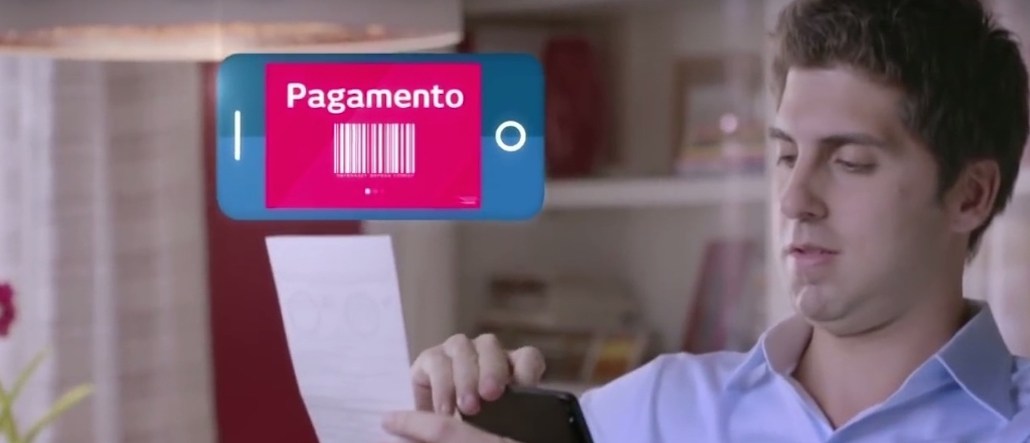Secure your place at the Digiday Media Buying Summit in Nashville, March 2-4

Telefónica is diversifying its revenue streams by opening up new ways for brand advertisers to pick up the tab for people’s mobile data.
The Spanish broadband and telecom provider has been experimenting with various sponsored-data packages for brands for the last year in countries including Brazil and Mexico. Now it’s getting ready to move out of the testing phase and into the widespread rollout of models, which will incentivise customers to interact with branded assets — such as a watching a video or using an app — and, in exchange, the brand will pay for the data.
“Customer insights have shown that when people see a link on Facebook or Google to watch a video or download an app, the default behavior is often to defer watching it until they’re tethered to a Wi-Fi connection,” said Dan Rosen, Telefónica’s global ad director. “We’re making it so it’s free for them to do it, and the brand can pick up the tab. That then solves a problem for the customer and makes them more likely to consume content on the go. It’s an alternative to standard advertising for the brand and a nice new revenue model for us.”
Brazilian banking and financial services giant Bradesco was one of the first brands to test Telefónica’s sponsored data offer. The brand wanted to drive customers to use its mobile banking app, mainly because it’s far more costly for Bradesco when a customer reaches out via traditional channels — one of its branches or calls centers — as opposed to reaching out through an app. It costs the bank an average of $4 per transaction, whereas on a mobile device, it costs only $0.08.
“Since picking up the tab on those mobile data costs, the app’s usage has gone through the roof,” said Rosen. It actually doubled to 400,000 users. By driving more mobile banking customers Bradesco also lowered its overall costs and gained a 160 percent increase in insurance sales over mobile channels. It also calculated that performing simple tasks like checking balances and statements reduced the average amount of time a person queues at an ATM by 25 seconds, which the company said has increased overall customer service satisfactions.
In the U.K., Telefónica owns mobile operator O2, though not for long as it’s being sold to rival operator Three owner Hutchison Whaompa. The company is now expanding the choice of data sponsorship packages to include sponsored “sessions,” in which a user can do things like download a brand’s app or watch its video content as that brand covers the data charge. This particular product is still in its early stages, so Telefónica looking for advertisers to partner with, according to Rosen.
The end goal is to be able to extend these products to all its markets including Europe, he added.
It’s not the first mobile operator to explore the area of sponsored data. Several other providers, like AT&T and Verizon, have also dabbled with pilots and promotions. Verizon ran a data perk for Thanksgiving last November offering a free 1G of data along with free iTunes vouchers and a 30-day trial for Pandora. U.S. chocolate brand Hershey is among those to have worked with mobile operators on such offers.
In terms of revenue, it’s still “early days,” said Rosen. The plan is to test and refine the products once they’re fully available in the market. “We’ll get the products right first, and the revenue will follow.”
Mobile operators move notoriously slowly when it comes to product innovation, not just because of their size, but because any service or product aimed at monetizing its precious customer data must be, as Rosen puts it, “bullet proof.”
As a result, as more mobile operators tinker with data perks, the products remain mostly in experimental phase, according to DigitasLbi’s mobile strategist Rafe Blindfold. “The amount of data usage is constantly rising and Telefonica is trying to address the problem that people don’t want to pay for data,” he said.
More in Media

WTF is a creator capital market?
What is a creator capital market, what does it mean for creators looking to diversify revenue, and why is it so closely tied to crypto?

Media Briefing: Publishers explore selling AI visibility know-how to brands
Publishers are seeing an opportunity to sell their AI citation playbooks as a product to brand clients, to monetize their GEO insights.

Creators eye Snapchat as a reliable income alternative to TikTok and YouTube
Figuring out the Snapchat formula has been very lucrative for creators looking for more consistent revenue on a less-saturated platform.





